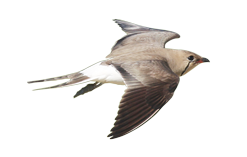Civil society organizations & sustainable management of Mediterranean wetlands
Context
In 2018, the French Development Agency (AFD) decided to provide financial support for a three-year project (2018-2021) submitted by Tour du Valat, a research institute for the conservation of Mediterranean wetlands, to support and strengthen civil society engaged in the conservation and sustainable use of wetlands in seven countries in the Mediterranean basin: Algeria, Jordan, Libya, Lebanon, Morocco, Tunisia and Turkey. In 2019, the French Global Environment Facility (FFEM) decided to strengthen the actions of this project, also involving Albania and Montenegro.
This project is based on two networks created in recent years, and mobilizing many civil society organizations (CSOs): the “Mediterranean Waterbird Networks (ROEM)” and the “Mediterranean Alliance for Wetlands” (AMZH). Twelve CSOs from the nine countries concerned, already involved in one or other of these two networks, are partners in this project.
Purpose of the project and specific objectives
The overall objective of the project is to better take wetlands into account in development and spatial planning decisions in the southern and eastern Mediterranean.
This requires building the capacity of civil society to manage wetland management actions and to take actions to influence the development sectors impacting wetlands, in particular the factors responsible for wetland degradation.
Three specific objectives have been identified: the first is common to the two networks “Mediterranean Wetlands Alliance” (AMZH) and “Mediterranean Waterbird Network” (ROEM). The second is specific to AMZH and the third to ROEM.
- Specific Objective 1 : Strengthening civil society capacity for wetlands, particularly in wetland protection, restoration, management, monitoring and communication;
- Specific Objective 2 : Strengthening civil society engagement in the implementation of the Mediterranean Wetlands Alliance;
- Specific Objective 3 : Development and institutionalization of the waterbird counting network as a standardized regional indicator for monitoring and communication and awareness on wetland health.
Through specific governance, the project must also take into account more transversal axes (gender, environment, etc.), as well as capitalisation, communication of results and impact assessment.
Activities
In order to achieve the above objectives, the following activities have been initiated or are planned:
1) Professionalization of civil society for wetland protection
- Development and implementation of a capacity building programme for partner CSOs in the spirit of South-South Train-the-Trainer training (Wetland restoration, Environmental education, Wetland threat management, etc.);
- Transfer of these acquired capacities to emerging national CSOs;
- Organisation of regional exchange forums on current and future challenges of Mediterranean wetlands;
- Implementation of local micro-projects on wetlands.
2) Strengthening civil society participation in the Mediterranean Wetlands Alliance
- Design and implementation of a platform for pooling resources (training materials, wetland management tools, communication/advocacy tools, etc.),
- Consolidation of the Observatory of Wetlands of the Mediterranean Basin,
- Design and implementation of the Red Alert scheme, to strengthen support to local and national CSOs for infrastructure projects that affect wetlands.
3) Improved monitoring and surveillance of wetland condition through waterbirds
- Strengthening wetland monitoring by counting birds,
- Development of training modules for waterbird monitoring, and training of teachers,
- Participation of CSOs in national and international events (conferences, specialized technical workshops…).
4) Project management and coordination

Interview : Limiter la pollution sur le site Ramsar d’Ammiq (Liban) |

Interview with Hazem Khreisha, Azraq Wetland Reserve Manager (Jordan) |
Team
Project leader: Christian Perennou & Laura Dami
Staff involved: Nicole Bonfils, Coralie Hermeloup
Partners
Technical partners
- GREPOM (Morocco)
- SPANA (Morocco)
- Royal Society for Nature Conservation (Jordan)
- Association Nationale Algérienne d’Ornithologie (Algeria)
- AAO/Birdlife (Tunisia)
- WWF Africa
- Libyan Bird Society (Libya)
- SPNL/Birdlife Lebanon (Lebanon)
- Doga Dernegi (Turkey)
- Ornithological Research Center (Turkey)
- Institute for Nature Conservation in Albania (Albania)
- Center for Protection and Research of Birds (Montenegro)
Financial partners
 |
 |



